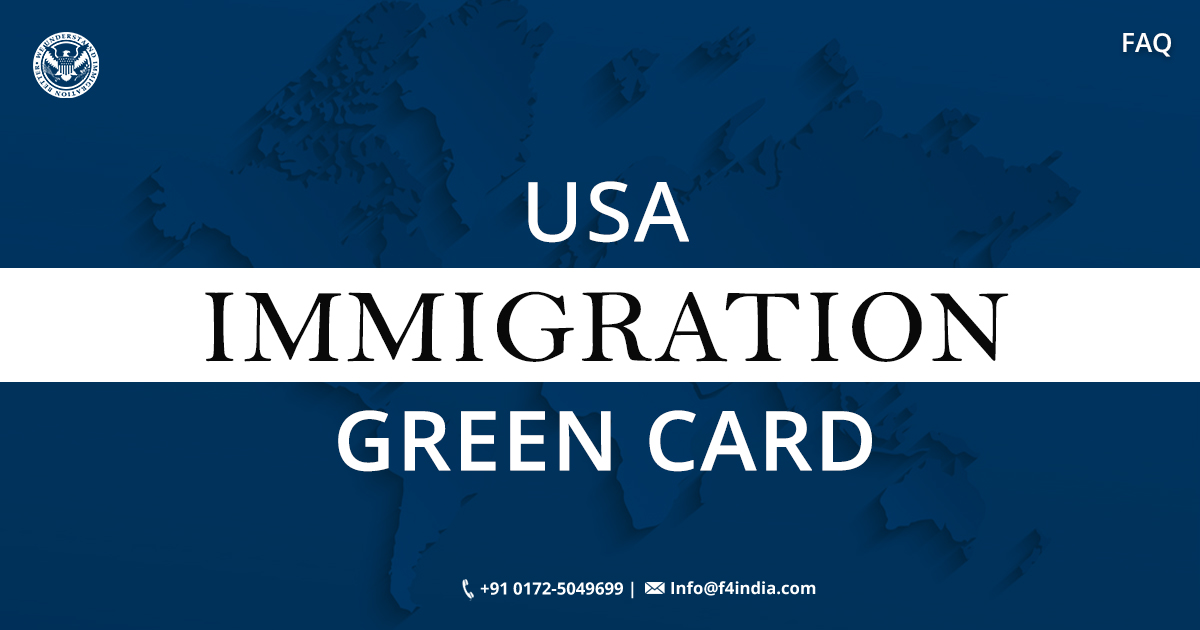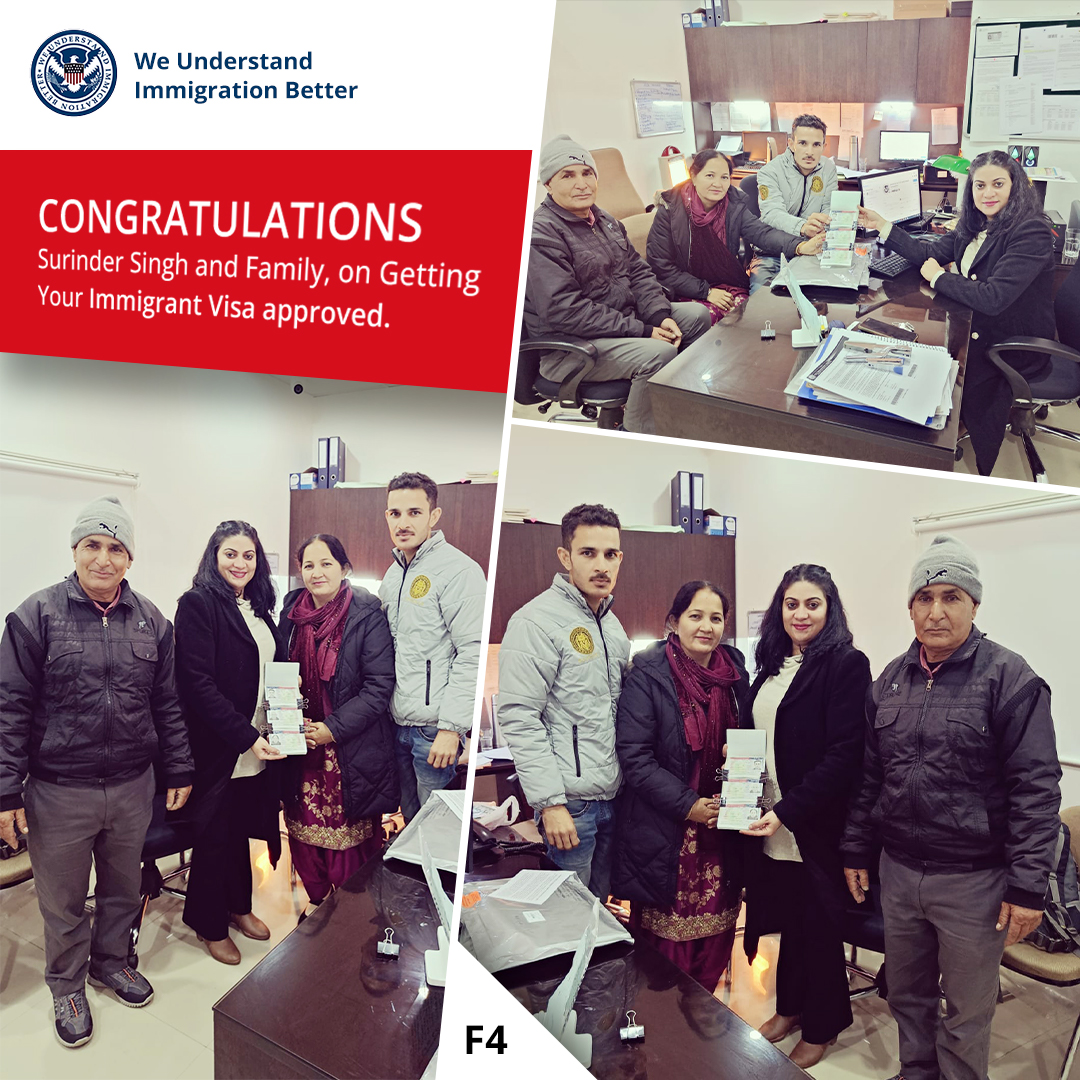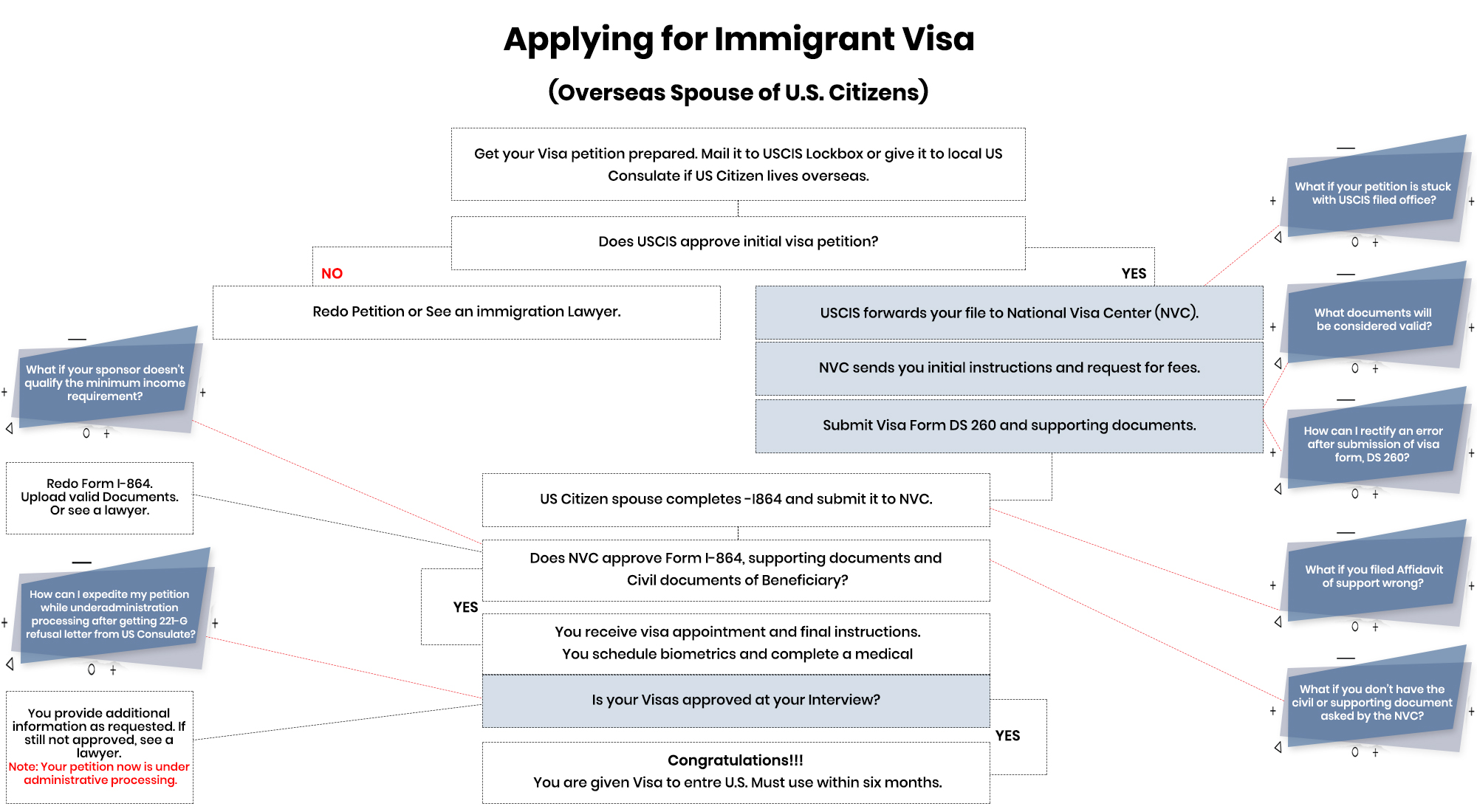FAQ USA IMMIGRATION GREEN CARD

Can my US citizen spouse get his or her congressional representative to sponsor a private bill to waive the requirement that I return to my home country for two years?
No. The J-1 visa was thought out by Congress to be an instrument of foreign relations. Students would get the benefit of training in the United States at government expense, in exchange for their promise to return to the home country to be of service there. The only time that Congress passed a private bill to waive the J-I foreign residence requirement was in 1955, and it was vetoed by the president for foreign policy reasons. The House of Representatives and Senate rules on private bills preclude consideration of a private bill to waive the J-1 foreign residence requirement.
If I enter the United States in J-1 status with my spouse in J-2 status (the spouse of a J-1 alien is given J-2 status). Can either of us work for a living in the United States?
Your spouse is entitled to work, but the law states that he or she is to earn income to enhance his or her recreational or cultural activities (going to plays and concerts, for example) and not for the purpose of supporting the family, which your funding is supposed to cover.
How does my spouse get permission to work in the United States?
He or she files Form I-765, Application for Employment Authorization, with the USCIS with payment of the $ 495 fee, which includes payment for biometrics.
Download the Form I-765 from the USCIS web- site: www.uscis.gov. The application is mailed to the appropriate lockbox facility (see the form’s instructions). The Employment Authorization Document (EAD) will be mailed to your spouse and will be valid for four years.
I am a citizen of the People’s Republic of China, and I came here in J-1 status. Someone told me that the foreign residence requirement does not apply to Chinese students. Is that true?
It was true for a while but is true no longer. It was true under a law called the Chinese Student Protection Act (CSPA), enacted October 9, 1992. Chinese students who had been in the United States at some time between June 5, 1989 (the date of the Tiananmen Square massacre), and April 11, 1990, and had resided continuously in the United States since then (except for “brief, casual, and innocent” departures) “could adjust status to legal resident, and the two-year foreign residence requirement of the J-1 visa was waived. But the application period ended June 20, 1994. If you did not apply for adjustment by that date, the waiver of the residence requirement does not apply to you.
Does this mean that I have to go back to China?
You can still apply for a waiver of the foreign residence requirement. It just means that the automatic waiver of the CSPA no longer applies to you.
I am a businessperson. Which is the right visa for me?
There is a visa called the B-1 (visitor for business) visa. Its purpose is to further international trade and commerce. For that reason, it is not an authorization to come to the United States and look for employment. You cannot be paid by a US source for working here. Instead, you must be paid by your home country employer for the work that you do here for that employer.
As a business visitor, do I qualify for the same Visa Waiver Program that the tourist does?
Yes, if you are a citizen of one of the eligible countries.
What are some examples of what the B-1 business visitor can do here?
A good example is the clothier who takes measurements of American customers for clothes manufactured abroad. Payment is made to the foreign company, and the clothes are delivered to the US customers. The example would serve equally well for any article made abroad and purchased by the American customer, as a result of the salesmanship of the B-1 visitor for business.
I am a sculptor. can I get a B-1 visa to try to interest US customers in my work, and may be obtain some commissions for new work from people who see my work in my studio and like it?
Probably not. The USCIS would likely look at your proposal as a plan to solicit business and trade for yourself, not as a plan that will have a positive impact on international trade and commerce. But we now have to say, hey it’s the Trump administration, and there are decisions coming down which are simply surprising and little connected with law and reason at times.
Is it possible for my US citizen spouse to have their congressional representative sponsor a private bill to waive the requirement for me to return to my home country for two years?
Answer: No, it is not possible. The J-1 visa was specifically designed by Congress as a means of fostering foreign relations. It allows students to receive training in the United States at the expense of the government, with the understanding that they will return to their home country to contribute there. Although a private bill was passed in 1955 to waive the J-1 foreign residence requirement, it was vetoed by the president due to foreign policy considerations. The rules governing private bills in the House of Representatives and Senate do not allow for consideration of a private bill to waive the J-1 foreign residence requirement.
If my spouse and I enter the United States in J-1 and J-2 status respectively, are we allowed to work in the United States?
Answer: Your spouse, in J-2 status, is eligible to work, but the law specifies that their income should be used for recreational or cultural activities rather than supporting the family. Your funding is intended to cover the family’s financial needs.
How can my spouse obtain permission to work in the United States?
Answer: Your spouse needs to submit Form I-765, Application for Employment Authorization, to the United States Citizenship and Immigration Services (USCIS), along with the required fee of $495, which includes payment for biometrics. The Form I-765 can be downloaded from the USCIS website at www.uscis.gov. The application should be sent to the appropriate lockbox facility as indicated in the form’s instructions. Once approved, your spouse will receive an Employment Authorization Document (EAD), which will be valid for four years.
I am a citizen of the People’s Republic of China and came to the United States on a J-1 visa. Someone told me that Chinese students are exempt from the foreign residence requirement. Is that true?
Answer: That information was accurate for a period of time but is no longer true. The exemption applied under a law called the Chinese Student Protection Act (CSPA), which was enacted on October 9, 1992. It allowed Chinese students who were in the United States between June 5, 1989 (the date of the Tiananmen Square massacre), and April 11, 1990, and had continuously resided in the United States since then (with exceptions for brief and innocent departures) to adjust their status to legal permanent resident, waiving the two-year foreign residence requirement of the J-1 visa.
However, the application period for the CSPA waiver ended on June 20, 1994. If you did not apply for adjustment of status by that date, the waiver of the residence requirement does not apply to you.
Does this mean I have to return to China?
Answer: No, you can still apply for a waiver of the foreign residence requirement, but the automatic waiver provided by the CSPA no longer applies to you.
I am a businessperson. Which visa should I apply for?
Answer: The appropriate visa for you would be the B-1 visa, also known as the visitor for business visa. Its purpose is to facilitate international trade and commerce. However, it does not authorize you to seek employment in the United States or receive payment from a US source. Instead, you should be paid by your employer in your home country for the work you do in the United States on their behalf.
As a business visitor, am I eligible for the Visa Waiver Program like tourists?
Answer: Yes, if you are a citizen of one of the eligible countries, you can participate in the Visa Waiver Program.
Can you provide some examples of what a B-1 business visitor can do in the United States?
Answer: A typical example would be a clothier who takes measurements of American customers for clothes that are manufactured abroad. The payment for the clothes goes to the foreign company, and the finished products are delivered to the customers in the United States. This example can be extended to any item produced abroad and purchased by an American customer due to the sales efforts of the B-1 business visitor.
I am a sculptor. Can I obtain a B-1 visa to showcase my work to potential US customers and potentially secure commissions?
Answer: It is unlikely that your proposal would be considered acceptable by the USCIS. They are likely to view it as a plan to solicit business and trade for yourself rather than one that would positively impact international trade and commerce. However, it’s worth noting that the current administration’s decisions may sometimes be surprising and not strictly aligned with legal and rational perspectives.
My Parents and my Brother got the immigrant visa through F4 India team, We are so fortunate enough to have a great immigration advisor like Mr.SAMAR SANDHU, at some points we lost the hope of getting visa for my brother because his name was not in the list for the family visa, but Samar sir never gave up on our case, AND NOW MY BROTHER IS IN USA WITH MY PARENTS, a Big thanks to SAMAR SIR, ANISHA MAM and Team. One more thing I would like to mention that F4 India team always treats you like a family, not like a client. Now here is the summary of my Family Case. Our counselor processing for I -130 petition was taken care by F4 India consultants. All our immigration processing starting from I-130 to filling DS -260, submitting civil documents to NVC , applying for sought to acquire for my Brother, everything went well by the team of F4 India under the guidance of Mr. Samar Sandhu Sir
Surinder Singh


